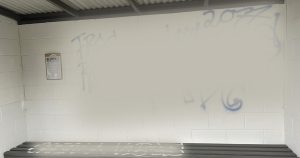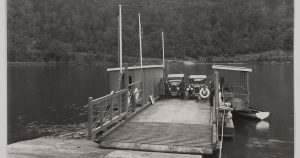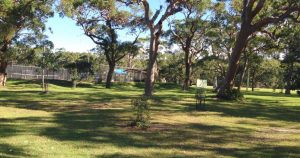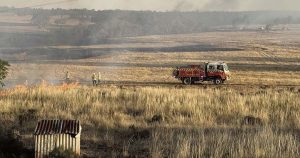Council is looking to address the increasing demand on sporting fields by reforming the allocation process in 2016.
As of March 2016, a new allocation process which prioritises community sporting clubs ahead of private and commercial operators will come into effect.
Hills Shire Mayor Dr Michelle Byrne said a combination of factors had led to the chronic shortage of grounds including the rapid growth of all-age and over-35s competitions, the growth in non-traditional sports such as Ultimate Frisbee, Touch Football and Oztag as well as commercial operations like six-a-side football.
Further pressure comes from accommodating the sporting needs of The Hills’ booming population, with thousands of additional residents moving in to suburbs like Box Hill and North Kellyville.
“The allocation of sporting fields is one of the most challenging and divisive issues we have to deal with at Council. We are in a situation where Council is trying to accommodate as many residents as possible, but there are bound to be some who don’t get exactly what they want,” Mayor Byrne said.
“We allocate 75 fields to 50 community sporting clubs, with the highest demand coming from football (soccer). Over the last few years, the addition of commercial operators such as personal trainers, fitness boot camps, summer six-a-side football competitions and private football academies have placed enormous strain on our grounds.”
“Council must now act before the situation spirals out of control and before more community sporting clubs miss out. Our new allocation process strikes the right balance in terms of meeting the needs of the majority of our residents.”
Mayor Byrne said the growth of profit-oriented usage including personal training, fitness boot camps, six-a-side football competitions, touch footy competitions and football academies had been rapid and largely unexpected.
“These new demands on our sporting fields have come thick and fast. While we want to encourage as many people to get out there and live a fit and healthy lifestyle, priority has to be given to the not-for-profit community clubs that are run by volunteers and provide an exceptional service to our residents and juniors.”
“Not only are the grounds being booked out more than ever, but the intense nature of the usage such as six-a-side football means that grounds are in the worst state they’ve been in throughout their history, with little time to recover over summer which is traditionally dominated by cricket – a sport that doesn’t impact the pitch too heavily.”
“Council is aware of around 30 private operators that are currently booking community sporting grounds at rates designed for community sporting clubs, however the nature of the aim of their operation is to make a profit.”
“Community sporting clubs have been helping generations of juniors to develop their sporting skills over many decades and Council wants to do everything it can to preserve this important cornerstone of our society.”
“We need to provide the right conditions for our sporting clubs to operate and grow, ahead of private commercial interests. That being said, we want to work with the commercial operators to see how we can accommodate them at other venues.”
“A good example is personal trainers and fitness boot camps. They can use other parks that aren’t classified as sporting fields. We are also looking at other opportunities including how we can integrate under-utilised resources like some tennis courts and netball courts for personal trainers.”
Mayor Byrne said that as sporting grounds are highly sought after, clubs needed to prove that they need the grounds they requested.
“Clubs will need to use it or lose it. It’s not fair or efficient to demand a sporting ground all day every day and then rarely use it. We need clubs to be more efficient and open-minded in their approach to allocations and where possible, share the grounds with neighbouring clubs.”
“We need everyone to work together to get the most out of our sporting fields and to ensure that as many Hills juniors and seniors are training and playing sport.
Mayor Byrne said the new process would result in some changes.
“For community sporting clubs, the changes will be minimal and in most cases, clubs will be better off. Commercial operators may not have access to fields they have previously used, but Council wants to work with you to find a solution.”
| Code | Rego’s | # Fields | Clubs | Players / Field | Data Source & Notes |
| Soccer | 12,000 | 41 | 21 | 292 | · Official 2015 data
· 6 of 41 fields in semi-rural areas |
| League | 1,500 | 8 | 5 | 187 | · 2015 Year Book data plus 2016 club projections |
| Union | 675 | 3 | 3 | 225 | · Club projections |
| AFL | 635 | 4 | 3 | 159 | · Club projections |






